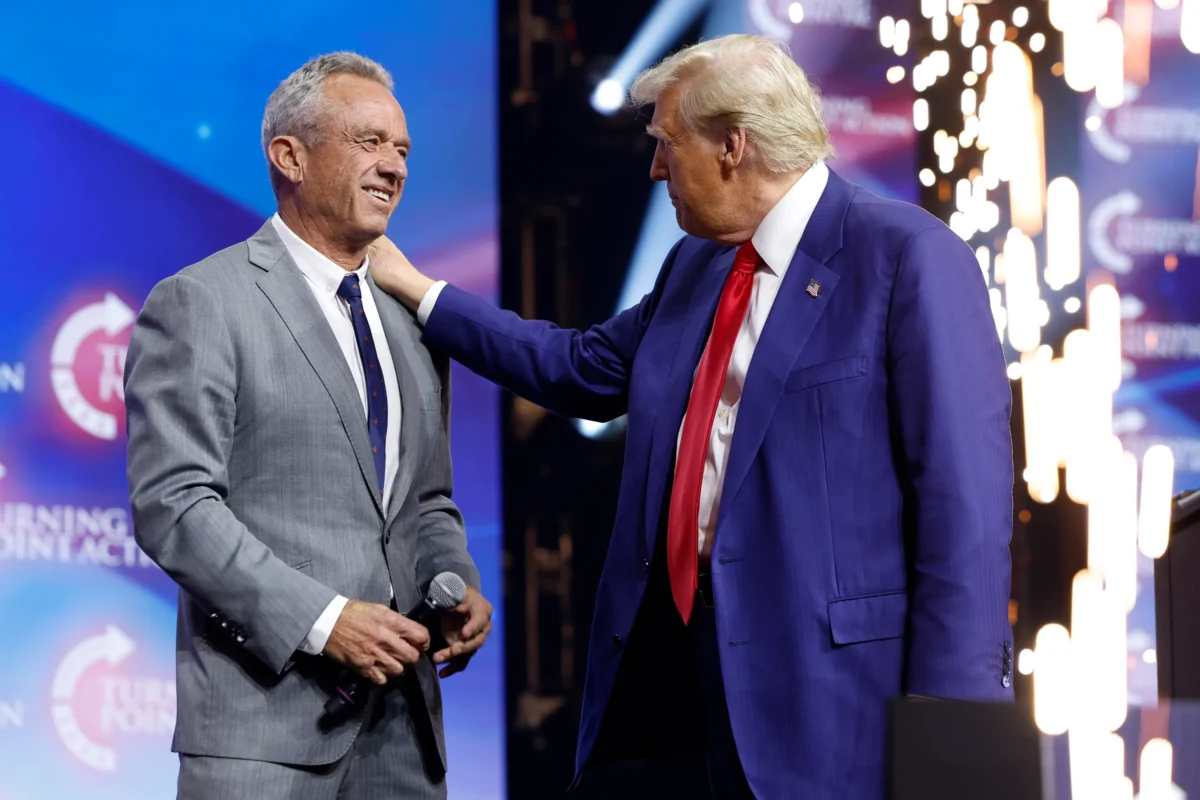Trump’s Vision for US Public Health Policy: The Potential Impact of RFK Jr.’s Influence
Former President Donald Trump’s recent statements reveal a potential pivot in the US public health policy if he wins the 2024 election. He has hinted at granting a prominent role in his administration to Robert F. Kennedy Jr., an outspoken critic of conventional health and vaccination policies. This possibility marks a significant shift, as Kennedy’s controversial views challenge established medical norms and could lead to new directions in federal health policy.
Vaccine Skepticism and Public Health: Kennedy’s Stance on Vaccines
Kennedy has consistently voiced concerns linking vaccines to health risks like autism, despite decades of research refuting such connections. Mainstream medical institutions, including the Centers for Disease Control and Prevention (CDC) and the World Health Organization (WHO), strongly support vaccines as essential public health tools. Nonetheless, Kennedy’s appointment could bring a more vaccine-skeptical perspective into the federal dialogue on the US public health policy.
If appointed, Kennedy’s influence could introduce changes that might redefine US public health policy in the U.S. regarding vaccines. A potential ban or restriction on specific vaccines could be evaluated, challenging long-held practices in disease prevention. This approach would have broad implications for immunization programs, potentially impacting public health initiatives aimed at controlling vaccine-preventable diseases.
Fluoride in Water: Revisiting a Long-Standing Public Health Debate
Trump’s openness to banning fluoride in drinking water—a stance Kennedy has advocated—highlights another area where US public health policy could diverge from established practices. Kennedy has labeled fluoride as “industrial waste” linked to severe health conditions. However, both the CDC and the American Dental Association (ADA) maintain that fluoride in water supplies is safe, effectively reducing tooth decay across populations.
The endorsement of fluoride removal would significantly affect community water fluoridation programs, impacting millions of Americans. Health advocates warn that eliminating fluoride could lead to higher incidences of dental disease, particularly in vulnerable populations. Conversely, supporters of this policy argue that individuals should have a choice in fluoridation, citing concerns over its safety.
Potential Public Health and US Public Health Policy Shifts under a Trump-Kennedy Team
Trump’s campaign statements suggest a readiness to consider unorthodox public health strategies, many of which Kennedy has promoted. These strategies may include:
- Chronic Disease Focus: Sources indicate that Kennedy might play a substantial role in addressing chronic childhood diseases. This focus aligns with his advocacy for alternative health approaches, which he asserts are more effective and safer for children.
- Health and Women’s Health Initiatives: Trump’s remarks on Kennedy’s potential role in women’s health introduce a broad scope of possible health reforms. Should Kennedy influence women’s health policy, his skepticism toward conventional pharmaceuticals could guide new approaches to reproductive and preventative health services.
- COVID-19 and Future Pandemic Preparedness: Kennedy’s critique of the COVID-19 vaccine and the pandemic response could shape future public health preparedness strategies, potentially shifting focus away from vaccine-based prevention. This approach might emphasize early treatment protocols and natural immunity, with less reliance on mandatory vaccination.
Public and Medical Community Reactions
The possibility of a Trump-Kennedy partnership on the US public health policy has stirred concerns within the medical community and among public health experts. Many professionals argue that such policy shifts could undermine confidence in vaccines and other longstanding health practices. Public health organizations advocate for continued adherence to evidence-based practices, emphasizing that vaccine safety and water fluoridation are well-supported by scientific research.
Conversely, some Americans support these potential US public health policy changes, viewing them as opportunities for more choice and transparency in healthcare. They argue that individuals should have the right to make informed decisions about their health without government mandates, particularly in areas such as vaccination and water fluoridation.
Epilogue
The integration of Robert F. Kennedy Jr.’s health perspectives into a future Trump administration represents a pivotal moment for US public health policy. If these ideas are actualized, they may lead to a landscape where vaccine choice, alternative health treatments, and debates over fluoridation shape the national health narrative. As 2024 approaches, these issues will undoubtedly remain central to discussions on the future of American health policy.
Trump’s openness to unconventional health measures highlights a significant departure from traditional public health policies, with Kennedy potentially leading a transformative era in the administration’s approach to healthcare.



